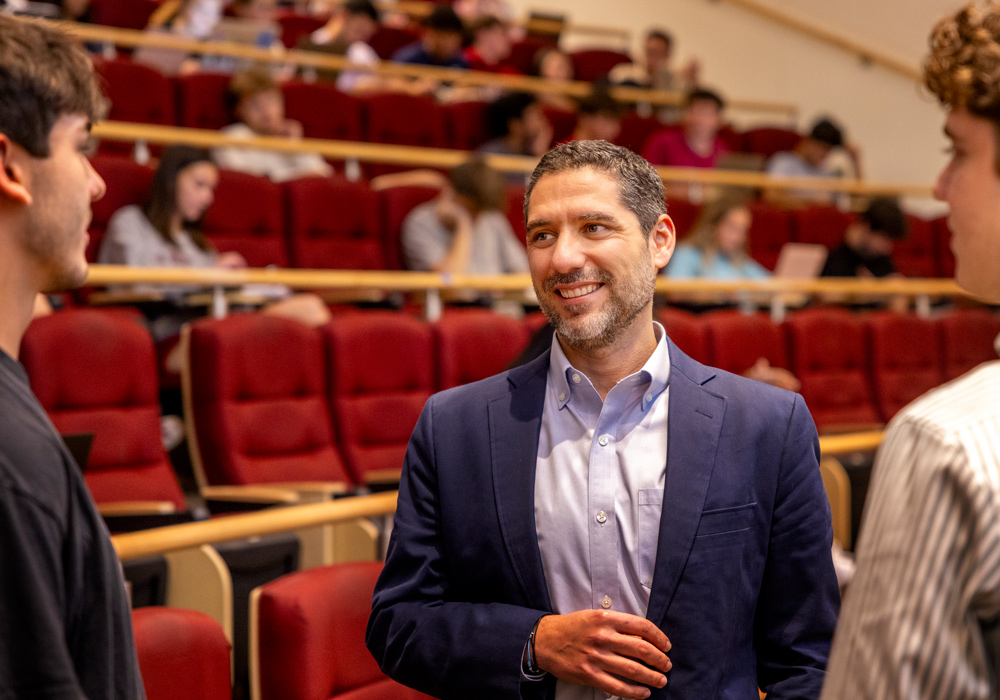Ozgur Ince, finance professor in the University of South Carolina’s Darla Moore School of Business, is always looking for new ways to make finance relatable for his students.
“I don’t want my teaching to get boring and old and stale for myself or for my students,” says Ince, a 2024 Michael J. Mungo Undergraduate Teaching Award winner. “Finance is dynamic, with new developments and real-world events happening constantly.
“Not teaching it in fresh ways or bringing current information into the classroom would do a disservice to students.”
In addition to teaching a core class for business majors, Ince hopes his students come away from his class understanding how to manage their own finances.
“Finance is becoming more an individual responsibility and the stakes are high,” he says. “I feel a great responsibility to make sure my students learn how to be responsible investors.”
Ince teaches large classes of business majors as well as smaller Honors College classes and consistently receives rave reviews from his students. Part of winning over his students comes from his willingness to bring the latest technology into the classroom.
“What I really appreciate about Professor Ince is that he is always tweaking the way in which he teaches and looking for new ways to engage with students,” says Eric Powers, chair of the finance department. “He was among the first in our department to use student response technology. As has been hammered home during our experience with online education during the COVID19 crisis, finding ways to break up lecture and force students to apply the recently taught information is much more effective pedagogy that just lecturing for 75 minutes.”
Ince also has embraced the possibilities of artificial intelligence and has used AI chat bots to “debate” as though they were Nobel Prize-winning finance experts.
“In finance, not everything is black or white,” he says. “Expert opinions are important. There are debates. But you can’t always invite individuals into the classroom.
“Finance is the closest business subject to the engineering way of thinking. That was very attractive to me.”
“What is effective is students seeing people debate those two sides. I can tell AI to act like this one person and also act like this other person and have a short debate. The two ‘sides’ argue the pros and cons, and I let the students make up their own minds.”
Ince’s own introduction to finance was a bit of happenstance, he says.
After completing his undergraduate degree in mechanical engineering at Istanbul Technical University in Turkey in 1999, he began looking for graduate programs at U.S. universities. He landed at the University of Michigan, where he took a financial engineering class.
“It was my first introduction to finance,” Ince says. “I was surprised by the similarities between the two fields and I became more involved in the business school.”
He then went to the University of Florida for his Ph.D. in finance and began teaching in that field.
“Finance is the closest business subject to the engineering way of thinking,” he says. “That was very attractive to me.”
But finance had another plus that his engineering experience lacked.
“When I was doing my master’s in mechanical engineering, sometimes I’d spend all day running code. It was a very isolated experience,” he says. “Finance is much more social and dynamic and changes more rapidly.”
